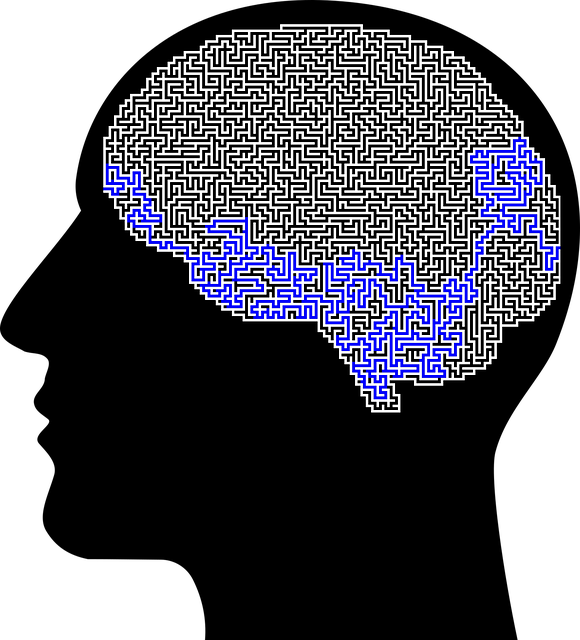Lakewood Mindfulness Therapy offers a holistic approach to building emotional resilience, especially for mental health professionals facing demanding workloads and stressful environments. Using the Resilience Framework for Mental Health (RFM) as a guide, they provide tailored interventions focusing on emotional awareness, stress management, and communication strategies. This personalized approach equips individuals with tools to confront challenges, recover from setbacks, and thrive. By integrating mindfulness practices into daily routines, clients develop inner strength, reduce mental illness stigma, and enhance overall well-being. Lakewood Mindfulness Therapy's method includes comprehensive assessments, culturally sensitive techniques, and resources like podcasts to support trauma recovery. They measure success through behavioral changes and emotional shifts, emphasizing long-term habit formation for enduring mental health resilience.
“Discover the power of resilience with an innovative approach, combining Lakewood Mindfulness Therapy and RFM (Resilience Factor Model). This comprehensive guide explores how individuals can enhance their emotional well-being through a holistic framework. By understanding personal resilience needs, leveraging specific exercises, and measuring progress, one can cultivate lasting strength.
Learn about Lakewood Mindfulness Therapy’s role in building resilience, identifying individual strengths, and implementing practical techniques for emotional resilience.”
- Understanding RFM: The Framework for Resilience Building
- Lakewood Mindfulness Therapy: A Holistic Approach to Well-being
- Identifying Individual Resilience Needs and Strengths
- Implementing Effective Exercises for Emotional Resilience
- Measuring Success and Sustaining Long-term Resilience
Understanding RFM: The Framework for Resilience Building

At Lakewood Mindfulness Therapy, we recognize that building resilience is a cornerstone of fostering mental well-being, especially among mental health professionals who often face high-stress environments and demanding caseloads. Our approach to this critical aspect of therapy stems from a deep understanding of RFM (Resilience Framework for Mental Health). This framework acts as a compass, guiding our strategies and interventions designed to enhance resilience. By integrating RFM into our practices, we equip individuals with the tools to navigate life’s challenges more effectively, ensuring they can bounce back from setbacks and continue thriving.
The RFM model is not just a theoretical construct; it’s an actionable framework that translates into practical exercises tailored to individual needs. These exercises span various areas, including emotional awareness, stress management, and effective communication strategies (a vital aspect of risk management planning for mental health professionals). Through these activities, we empower clients to cultivate mental fortitude, improve coping mechanisms, and build a support system that can be relied upon during turbulent times.
Lakewood Mindfulness Therapy: A Holistic Approach to Well-being

Lakewood Mindfulness Therapy offers a holistic approach to well-being, focusing on cultivating inner strength and resilience through mindfulness practices. This therapy encourages individuals to develop coping skills that empower them to navigate life’s challenges with grace and poise. By integrating mindfulness into daily routines, participants learn to cultivate present-moment awareness, fostering a deeper connection with their thoughts and emotions without judgment.
This therapeutic approach not only promotes mental well-being but also plays a significant role in Mental Illness Stigma Reduction Efforts. By normalizing the practice of mindfulness, Lakewood Mindfulness Therapy helps individuals build inner strength, reducing the impact of societal perceptions and promoting understanding and acceptance of diverse mental health experiences. Through regular practice, participants gain tools to enhance their overall resilience, enabling them to face life’s uncertainties with confidence and composure.
Identifying Individual Resilience Needs and Strengths

Every individual has a unique journey when it comes to resilience. At Lakewood Mindfulness Therapy, we understand that one-size-fits-all approaches rarely work in mental health. Therefore, our approach to building resilience involves meticulously identifying each client’s distinct needs and strengths. This process begins with an in-depth assessment that delves into their personal history, coping mechanisms, and stress triggers. By understanding these factors, our therapists can tailor exercises that address specific areas of vulnerability, empowering clients with effective tools for navigating life’s challenges.
Through this tailored approach, we aim to enhance their natural resilience, fostering a sense of self-efficacy and emotional agility. By recognizing individual strengths, such as adaptability or strong social connections, therapists can build upon these assets. This strategy not only supports overall mental well-being but also ensures that the coping skills developed are culturally sensitive and relevant to the client’s background, making them more effective and sustainable in their daily lives. Moreover, our methods consider the risk assessment for mental health professionals, ensuring safe and supportive interactions at every step of the resilience-building process.
Implementing Effective Exercises for Emotional Resilience

Implementing effective exercises for emotional resilience is a key aspect of holistic well-being, as advocated by Lakewood Mindfulness Therapy. These practices are designed to help individuals navigate and cope with life’s challenges, fostering a sense of stability and strength. One such powerful tool is mindfulness meditation, which encourages individuals to focus on the present moment, thereby reducing anxiety and stress. Regular practice enhances self-awareness, enabling better emotional regulation and decision-making.
The integration of these techniques into daily routines can significantly contribute to mental wellness. Lakewood Mindfulness Therapy also offers valuable resources, such as the Mental Wellness Podcast Series Production, which provides guided meditations and expert insights tailored for trauma support services. Additionally, risk management planning for mental health professionals is essential to ensure a safe and supportive environment when implementing these exercises, especially when dealing with vulnerable populations.
Measuring Success and Sustaining Long-term Resilience

Measuring success in resilience building exercises is a multifaceted endeavor that goes beyond simple numbers. At Lakewood Mindfulness Therapy, we believe in quantifying both behavioral changes and emotional shifts to truly assess long-term impact. This involves tracking participant engagement in regular practices like meditation, mindfulness exercises, and stress management techniques, as well as gauging improvements in their overall well-being and ability to navigate life’s challenges. By utilizing a combination of self-reported surveys, observational data, and feedback from both participants and facilitators, we can identify which aspects of the program are most effective for different individuals.
The key to sustaining resilience lies in making these practices an integral part of one’s daily routine, rather than fleeting interventions. Through ongoing support, tailored guidance, and a focus on emotional healing processes, Lakewood Mindfulness Therapy aims to empower participants to continue their journey even after formal sessions conclude. This holistic approach ensures that individuals not only build resilience but also cultivate lasting habits that promote overall mental health and well-being, making them better equipped to handle whatever life throws their way.
The implementation of RFM (Resilience, Flexibility, and Mindfulness) exercises, as showcased by innovative approaches like Lakewood Mindfulness Therapy, offers a holistic path to building emotional resilience. By identifying individual needs and leveraging strengths, these methods empower individuals to navigate life’s challenges more effectively. Consistent practice not only enhances short-term well-being but also fosters long-term resilience, enabling folks to thrive even amidst adversity. Incorporating RFM into daily routines can be a game-changer in cultivating a robust mental fortress.














